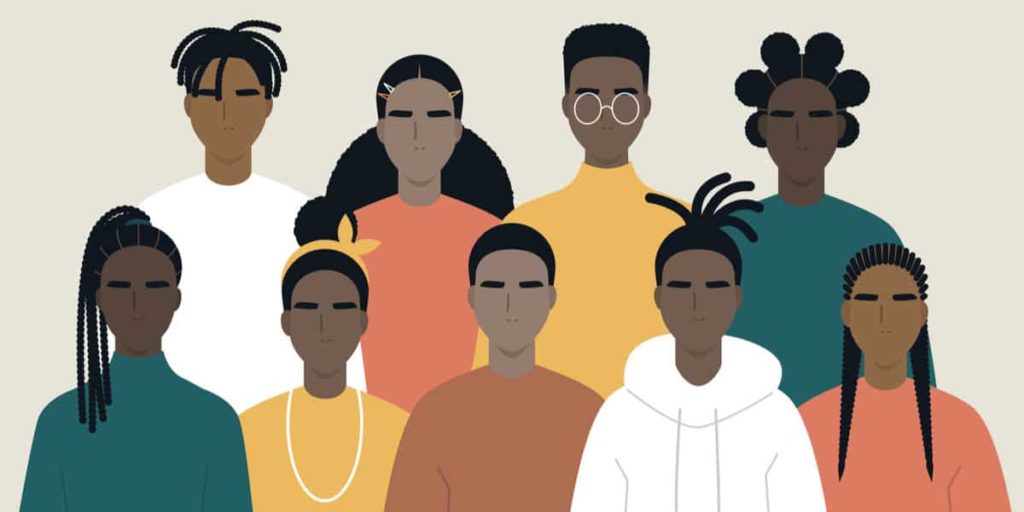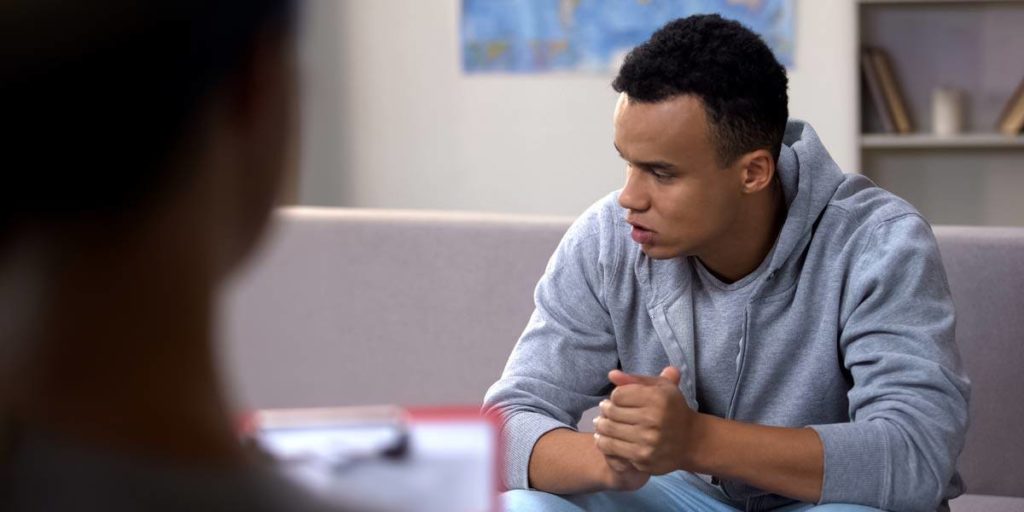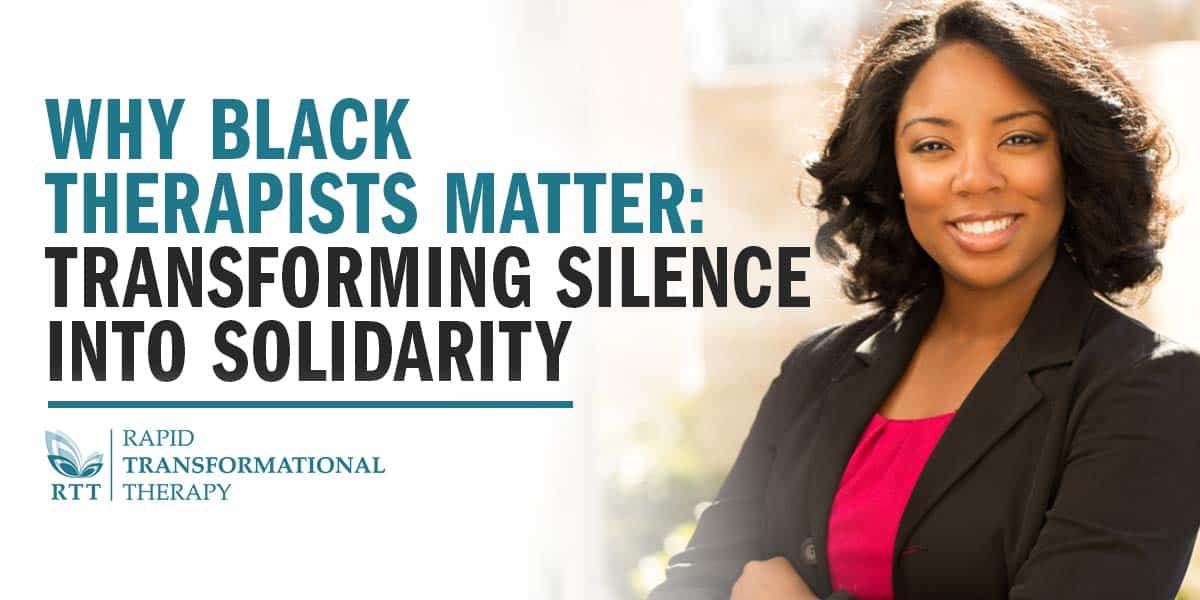Dana Givens was 22 when she experienced a severe anxiety attack that resulted in her collapsing at the office. She went back to work the next day with her head held high. She lived with anxiety and mild depression for a decade before she sought therapy. Even when she did, she did so in secret, battling feelings of shame.
Shaun J. Fletcher, a professor at San Jose State University, was rushed to the ER twice. His symptoms included a hazy mind, chattering teeth, trembling knees, and a palpitating heart. After numerous expensive medical tests that revealed nothing out of the ordinary physically, he set out to ease his anxiety and chronic stress by breaking the silence around mental health.
René Brooks, the blogger behind Black Girl, Lost Keys, educates and motivates Black women to discuss mental health issues openly. She lived with anxiety, PTSD, and dysthymia, yet she battled stereotypes and faced judgments from a mental health institution that lacked cultural competence.
For René, finding a Black therapist who shares the same cultural stigmas made all the difference to feeling heard and understood.
These are only a handful of stories from the Black community that reveal the urgent need to address the role of race in mental health discourse and the enormous racial gap within the mental health institution—of which Black therapists comprise only 4%.
The Shocking Truth About Black Mental Health

It was reported that adult Black Americans are 20% more likely to experience serious psychological distress than White adults. As a result of racism, African Americans have become more susceptible to unfavorable self-evaluations that harm their psychological well-being.
Today, with the effects of COVID-19 coupled with the systemic racism that the Black community experiences on a daily basis, Black Mental Health stats have plummeted.
If you are thinking that these symptoms end with the person experiencing them, think again.
Epigenetics research—the process by which genes are switched on and off—indicates that stress is coded into our DNA, which is then passed down through generations. This is precisely how transgenerational consequences of slavery, oppression, and discrimination on African Americans have increased their risk of depression, chronic stress, fatigue, PTSD, and physical health complications.
The impact of racial disparity can be seen as early as infancy in the Black community.
The U.S. Office for Minority Health reported that, due to racism-induced stress experienced by Black mothers, African Americans have 2.3 times the infant mortality rate as White infants.
Black infants are also three times more likely to die in the care of White doctors. The mortality rate of Black newborns was 39% lower when under the supervision of Black physicians than White physicians.
But it doesn’t stop there.
As our children grow, they step into an education system in which Black students are disproportionately disciplined and bullied.
Although Black students make up 15% of the student body, 35% report being harassed or bullied. To make matters worse, 31% are implicated in school-related arrests. These staggering numbers have prompted the Office for Civil Rights to raise concerns that schools may be engaging in racial discrimination that violates federal civil rights laws.
With that being said, the negative effects of bullying and victimization among African American adolescents include insecurity, anxiety, depression, and low academic performance. Suppressed and left untreated, these psychological symptoms are carried forward into adulthood.
Black adults joining the workforce are no strangers to racial discrimination.
The differences that only run skin deep result in horrifying experiences of workplace discrimination and serious violent crimes against the Black community, all of which contribute to higher PTSD rates, chronic stress, and depression.
We all want to belong and feel like a part of something greater than ourselves. For the Black community as a minority, fitting-in is a challenge.
The daily social pressure to downplay Black culture has contributed to lower self-esteem and increased psychological reactivity, which has magnified mental and physical health concerns.
For many of the Black individuals who are aware of the importance of mental health, seeking treatment may cost more than they can afford.
The socioeconomic status of African Americans prevents many from getting access to treatment.
In fact, more than 1 in 5 Black and African American people in the US live in poverty and don’t have access to healthcare insurance.
Despite the implementation of the Affordable Care Act, which was meant to make treatment affordable to more people, Black and African mental health stats show that 58.2% of young adults (18–25) and 50.1% of adults (26–49) with a severe mental illness did not receive treatment.
The Inadequacy in Mental Health Services in Supporting Black Communities

Culture—which includes beliefs, norms, attitudes, behaviors, and language—influences every aspect of our lives, including mental health.
As humans, we are wired for survival. Sometimes that means we are instinctually wary of what is different. However, we can consciously choose to nurture inclusion by inviting more individuals from racial minorities into our communities.
The mental health workforce, of which the White community comprises 86%, creates a diversity gap that perpetuates a lack of cultural understanding and competency.
This lack of cultural competency within the mental health community has resulted in the “often inappropriate and antagonistic” psychological treatment of ethnic minority populations.
The absence of diversity and culturally responsive mental health treatments have sometimes left patients feeling worse off after a visit to a therapist.
The fact is, in the USA, 40% of therapists discriminate against Black, poor patients. Black clients are able to sense implicit biases, such as through the body language of the therapist, which negatively affects their perception of treatment and deters them from seeking help in the future. Therapies are seen as Eurocentric, therapists as unwelcoming, and clients often feel invalidated, abused, misunderstood, and even oppressed.
We all have subconscious fears that influence the way we see the world and other people. In mental health practice, this could have unintended consequences. White clinicians, who may be unconsciously biased or afraid, are susceptible to the overpathologization of Black individuals.
Studies show that African Americans are “disproportionately diagnosed” with schizophrenia compared to their White fellow citizens. Moreover, the Black British community is four times more likely to be given psychoactive medication instead of talk therapy than White patients.
The mental health institution is aware of the racial disparity and is doing what it can to build bridges.
A popular approach to dealing with the stress and discomfort of addressing racial issues in therapy is through adopting a universal approach like ‘All Mental Health Matters’—a solution steeped in “color-blind racial ideology.” While this approach stems from a positive intent towards unity and inclusion, it can appear rather misguided.
By treating all individuals as equals, White clinicians risk denying or downplaying Black clients’ negative racial experiences.
Due to the lack of cultural understanding, diversity, and empathy, Black individuals have a deep mistrust of the mental health community, preventing them from seeking treatment or being receptive.
Fortunately, the mental health institution can take steps to offer the Black community a real opportunity for healing.
The mental health institution can regain the Black community’s trust by providing cultural competency training to White clinicians. The exposure can give them a glimpse into Black people’s culture, beliefs, and experiences so they could understand them better.
For a White therapist, compassionately listening to Black clients is the first step towards better understanding and improving Black mental health.
With trust, there is hope for healing.
Empowering Black Therapists for Better Black Mental Health

While a White therapist can undergo cultural competency training to improve Black clients’ therapy experience, Black Mental Health can significantly benefit from more Black therapists.
“Being Black is more than a trend. It is a shared experience, an identity, it is everything,” says psychotherapist and author Lola Jaye.
A Black therapist is familiar, and familiarity breeds trust—an element desperately needed to allay the fears and stigma associated with mental health services within the Black community.
Black clients report feeling safer and more comfortable asking for help when talking to a Black therapist. They don’t feel the need to downplay their identity or hold back for fear of judgment. They can openly talk to a Black therapist who ‘gets it’ about how racism is linked to the many problems that led them to seek therapy in the first place.
A one-size-fits-all approach is no longer adequate when dealing with Black Mental Health.
Today, therapists from Black and minority communities can benefit from foundations and organizations aimed at enhancing the mental health of ethnic minorities:
- The Boris Lawson Henson Foundation offers scholarships to African Americans interested in pursuing a career in the mental health field.
- Consider fast-tracking your career with Rapid Transformational Therapy® (RTT®), a revolutionary award-winning approach that harnesses the power of the mind to help transform people’s lives… fast.
- Therapy for Black Men digitally connects Black men with Black therapists to dissolve the stigma that asking for help is a sign of weakness and provides culturally competent care to their clients.
- The Black Emotional and Mental Health Collective is an organization committed to Black healing through community-based training programs, coaching opportunities, and online resources.
- Inclusive Therapists is a digital platform that addresses the need for a shared identity between therapist and client and advocates equal access to quality mental healthcare by matching clients to culturally responsive therapists online.
Championing Black Mental Health
You too can play an active role in championing Black mental health.
As an individual with the world at your fingertips, you can share this article with your friends, family, and loved ones to bring awareness to this issue. Use it as an opportunity to reassure your Black friends and colleagues that mental health is indeed a topic on the menu for your next meet-up.
If you are from the Black community, you can destigmatize the conversations around mental health by listening more actively and speaking more openly. Ask your friends how they are doing and help normalize the experience by comforting them and advising them to get help.
It should be as easy for us to talk about mental health as it is to talk about physical health.
Let us all turn mental health from a “taboo” topic to a “to-do” topic.



